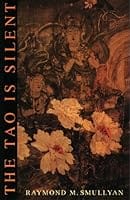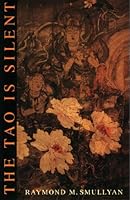The Tao Is Silent
Published:
The Tao Is Silent

Metadata
- Author: Raymond M. Smullyan
- Full Title: The Tao Is Silent
- Category: #books
Highlights
- If you can learn to fall asleep without taking a nap, then you too will become a Sage. (Location 87)
- There is something blurred and indistinct Antedating Heaven and Earth. How Indistinct! How Blurred! Yet within it are forms. How dim! How confused! Quiet, though ever functioning. It does nothing, yet through it all things are done. To its accomplishment it lays no credit. It loves and nourishes all things, but does not lord it over them. I do not know its name, I call it the Tao.1 (Location 97)
- I might make a similar comment about the Taoists. Since the Taoists make no claim that the Tao exists, it saves them a world of trouble in trying to prove that the Tao exists. This is really Chinese common sense at its highest! (Location 119)
- The Sage has no need to affirm the Tao; he is far too busy enjoying it! (Location 127)
- an adequate idea of the Tao must be as vague as the Tao itself. (Location 194)
- I know what it means to have an idea of an object, but for an idea to resemble an object! (Location 197)
- may be argued that no thing can be vague; only ideas are vague. In other words, vagueness is a property not of things, but rather of ideas or statements. I tend to agree with this. I doubt that an object, a thing can be vague. Yet the Tao obviously is vague. Hence it follows that the Tao is not a thing! (Location 200)
- The proof is to the effect that the Tao is that through which all things have come into being, hence Tao cannot be a thing! (Location 205)
- one of the things definitely emphasized by Zen is the idea that the transcendent is to be found right in the immanent; indeed, the transcendent and the immanent are identical. This surely is most explicitly implicit in this Zen verse: “When the wild bird cries its melodies from the treetops, Its voice carries the message of the patriarch. When the mountain flowers are in bloom, Their full meaning comes along with their scent”.1 And, of course, the idea that the transcendent is right in the immanent is explicitly explicit in the well known incident of the Master who when asked, “What is the Tao?” replied, “Your everyday mind”. Some may ask, “If the Tao is nothing more than one’s everyday mind, why call it the Tao; why not simply call it one’s everyday mind? (Location 237)
- Wittgenstein who wisely said, “Don’t look for the meaning; look for the use!” This may well be the key to the matter. (Location 263)
- to understand the meaning of “Tao” one must be thoroughly steeped in the whole philosophy and arts of Taoism. (Location 270)
- melody is far more than a group of sounds; it is their sounds together with some sort of pattern or superstructure some-how imposed. (Location 300)
- Rather it might be said that the universe bears the same sort of relation to the Tao as the group of notes of a melody bears to the melody itself. (Location 302)
- Nameless, the Tao is the source of heaven and earth Named, it is the Mother of all beings. (Location 385)
- It is unnameable because it changes in the very process of naming it. (Location 387)
- The Tao had best be left at rest, Like little birdies in their nest. (Location 394)
public: true
title: The Tao Is Silent longtitle: The Tao Is Silent author: Raymond M. Smullyan url: , source: kindle last_highlight: 2023-10-30 type: books tags:
The Tao Is Silent

Metadata
- Author: Raymond M. Smullyan
- Full Title: The Tao Is Silent
- Category: #books
Highlights
- If you can learn to fall asleep without taking a nap, then you too will become a Sage. (Location 87)
- There is something blurred and indistinct Antedating Heaven and Earth. How Indistinct! How Blurred! Yet within it are forms. How dim! How confused! Quiet, though ever functioning. It does nothing, yet through it all things are done. To its accomplishment it lays no credit. It loves and nourishes all things, but does not lord it over them. I do not know its name, I call it the Tao.1 (Location 97)
- I might make a similar comment about the Taoists. Since the Taoists make no claim that the Tao exists, it saves them a world of trouble in trying to prove that the Tao exists. This is really Chinese common sense at its highest! (Location 119)
- The Sage has no need to affirm the Tao; he is far too busy enjoying it! (Location 127)
- an adequate idea of the Tao must be as vague as the Tao itself. (Location 194)
- I know what it means to have an idea of an object, but for an idea to resemble an object! (Location 197)
- may be argued that no thing can be vague; only ideas are vague. In other words, vagueness is a property not of things, but rather of ideas or statements. I tend to agree with this. I doubt that an object, a thing can be vague. Yet the Tao obviously is vague. Hence it follows that the Tao is not a thing! (Location 200)
- The proof is to the effect that the Tao is that through which all things have come into being, hence Tao cannot be a thing! (Location 205)
- one of the things definitely emphasized by Zen is the idea that the transcendent is to be found right in the immanent; indeed, the transcendent and the immanent are identical. This surely is most explicitly implicit in this Zen verse: “When the wild bird cries its melodies from the treetops, Its voice carries the message of the patriarch. When the mountain flowers are in bloom, Their full meaning comes along with their scent”.1 And, of course, the idea that the transcendent is right in the immanent is explicitly explicit in the well known incident of the Master who when asked, “What is the Tao?” replied, “Your everyday mind”. Some may ask, “If the Tao is nothing more than one’s everyday mind, why call it the Tao; why not simply call it one’s everyday mind? (Location 237)
- Wittgenstein who wisely said, “Don’t look for the meaning; look for the use!” This may well be the key to the matter. (Location 263)
- to understand the meaning of “Tao” one must be thoroughly steeped in the whole philosophy and arts of Taoism. (Location 270)
- melody is far more than a group of sounds; it is their sounds together with some sort of pattern or superstructure some-how imposed. (Location 300)
- Rather it might be said that the universe bears the same sort of relation to the Tao as the group of notes of a melody bears to the melody itself. (Location 302)
- Nameless, the Tao is the source of heaven and earth Named, it is the Mother of all beings. (Location 385)
- It is unnameable because it changes in the very process of naming it. (Location 387)
- The Tao had best be left at rest, Like little birdies in their nest. (Location 394)